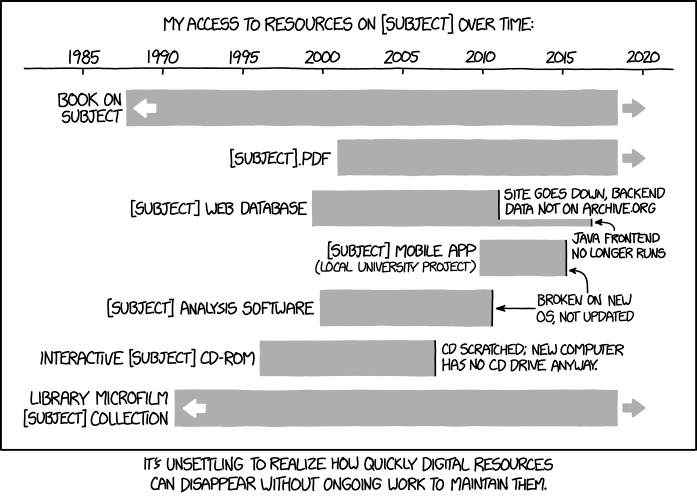As we increasingly transition towards digital storage and technologies, the Atlantic dives in to look at the remarkable lifespan – estimated at a half-millennium – of the microfilm format, NCR, OCR, PDFs, and more:
I recently acquired a decommissioned microfilm reader. My university bought the reader for $16,000 in 1998, but its value has depreciated to $0 in their official bookkeeping records. Machines like it played a central role in both research and secret-agent tasks of the last century. But this one had become an embarrassment.
The bureaucrats wouldn’t let me store the reader in a laboratory that also houses a multimillion-dollar information-display system. They made me promise to “make sure no VIPs ever see it there.” After lots of paperwork and negotiation, I finally had to transport the machine myself. Unlike a computer—even an old one—it was heavy and ungainly. It would not fit into a car, and it could not be carried by two people for more than a few feet. Even moving the thing was an embarrassment. No one wanted it, but no one wanted me to have it around either.
And yet the microfilm machine is still widely used. It has centuries of lasting power ahead of it, and new models are still being manufactured. It’s a shame that no intrigue will greet their arrival, because these machines continue to prove essential for preserving and accessing archival materials.
Also xkcd:


No comments:
Post a Comment